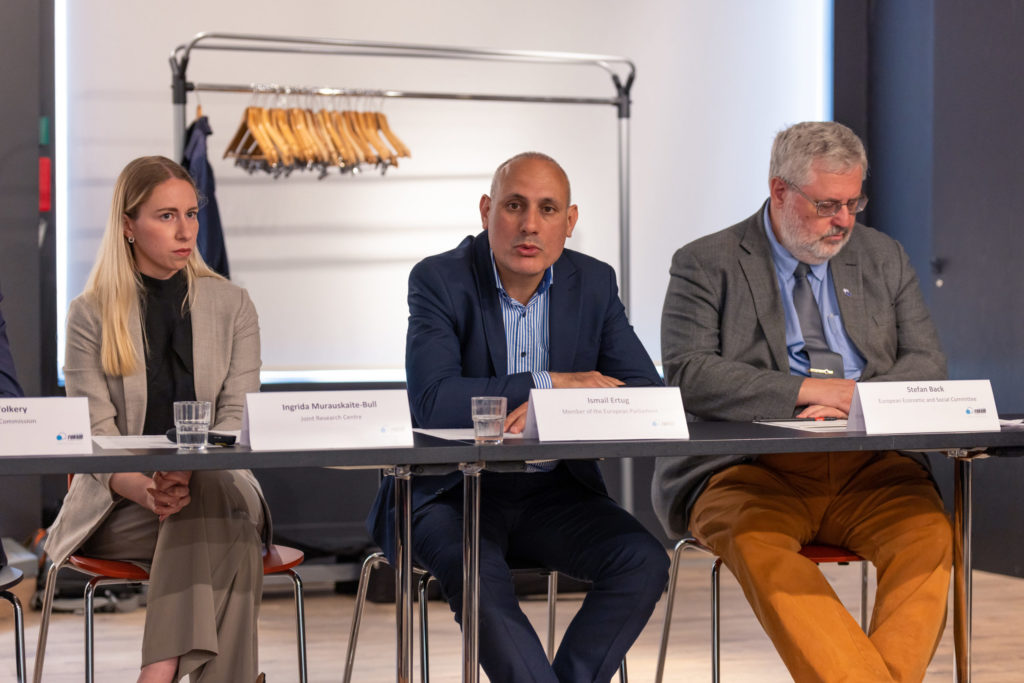The Forum for Mobility and Society (FMS) met yesterday under Chatham House Rules to discuss the societal impacts of energy taxation and road pricing, alternatively fuelled vehicles, and the Social Climate Fund. The social gap for automotive workers was also discussed as part of the wider mobility eco-system.
All these topics are key elements in securing a fair and affordable transition towards the European Union’s climate goals.
Project Officer at the EU Joint Research Centre and co-author of the study “Energy Taxation and its Societal Effects”, Ingrida Murauskaite-Bull, set the scene by explaining transport poverty – a concept that has yet to be accurately defined.
“Accessibility, affordability, and availability of transport are the three building blocks of transport poverty,” said Murauskaite-Bull. She highlighted that in some EU countries, households spend up to 17% of their household expenditure on transport alone; a figure that differs across Member States.
The Social Climate Fund was presented by Stefan Back, Vice-President of TEN Section at the European Economic and Social Committee (EESC). Back emphasized that the EESC is in favour of helping those in need, however it is important to determine who should be helped, how help should be organized and where the income from taxation measures should be used for.
Stakeholders present during the meeting expressed their views and concerns on the current developments regarding increased fuel prices, the war in Ukraine and the recent de-facto ban of the internal combustion engine.
Digitalization and decarbonization should go hand in hand, as both are opportunities to move the climate agenda forward while also being at the forefront of innovation when it comes to mobility.
An efficient public transport system should be heavily invested in, whether it be through trains or integrated MaaS (Mobility as a Service) systems. Accessible and affordable transport options should be made available for all, both in urban and rural areas.
A robust and adequate alternative fuels infrastructure should be ramped up to meet the drive towards electrification. In Norway, where most of new car sales have been electric vehicles, long queues can be seen at charging stations along main roads.
The importance of upskilling or reskilling workers is also a societal dimension that should not be dismissed as half a million jobs in the automotive sector is at risk if the transition is rushed.
The results of the discussion proved the complexity of bringing all elements together to create a holistic step towards climate neutrality. However, the consensus taken from the debate is that we are all heading towards achieving climate neutrality but there is not only one way of getting there.
About Forum for Mobility and Society
The Forum for Mobility and Society brings together mobility stakeholders from the industry and civil society. It organises regular debates on current mobility issues, actively involving European Institutions such as the European Parliament and the European Commission.
Contact
secretariat@debatingmobility.eu
